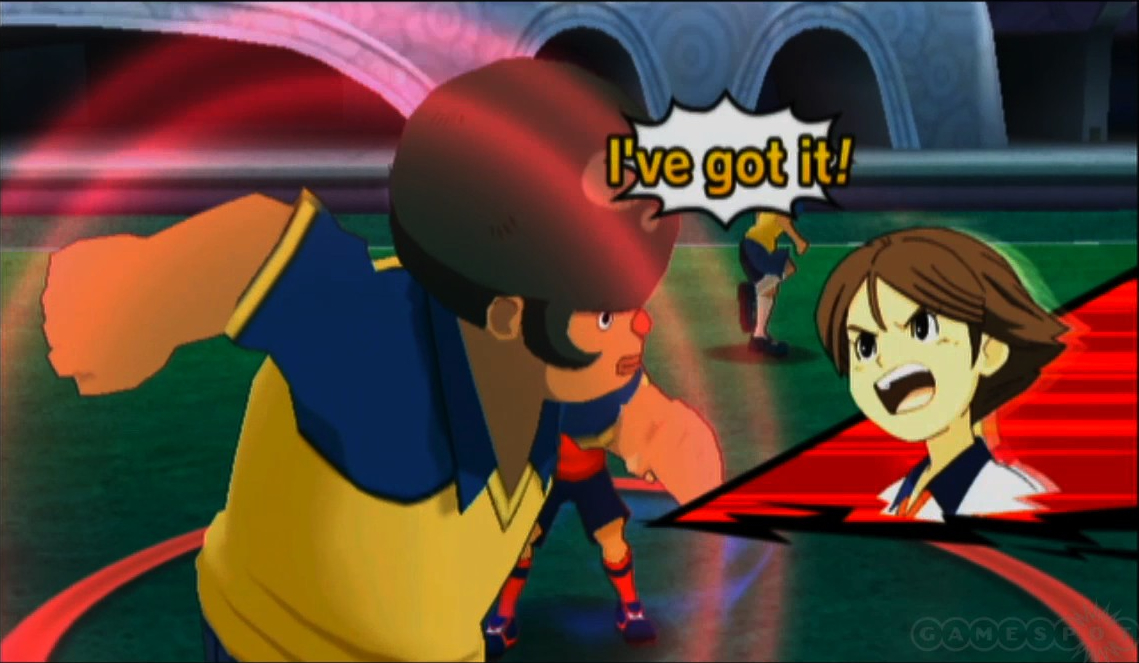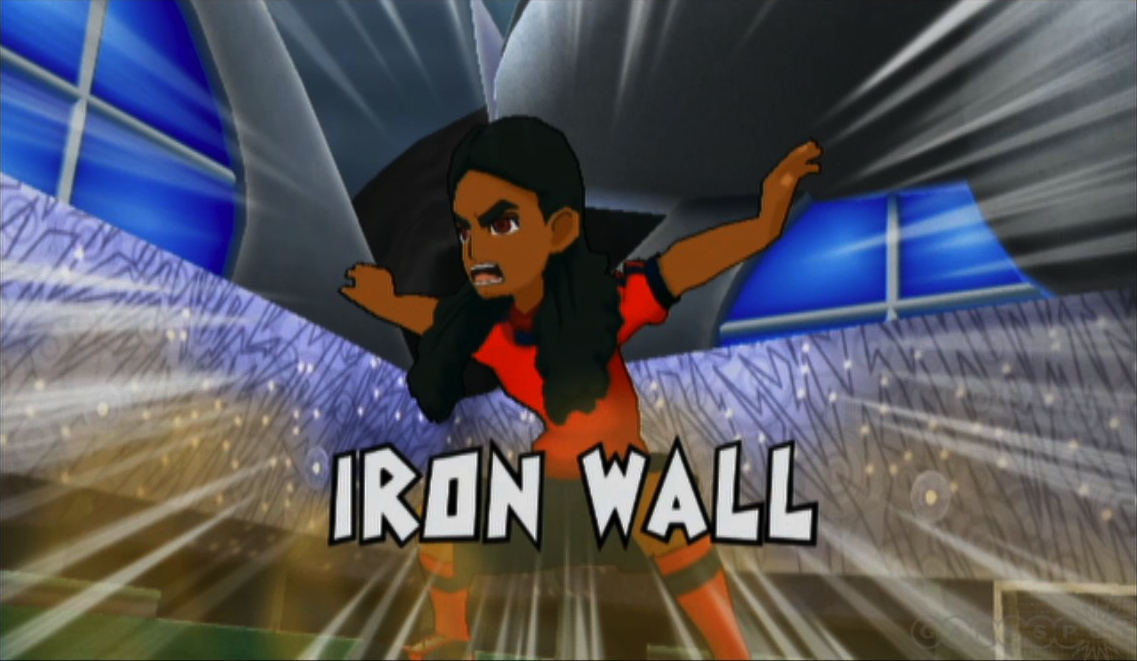While Inazuma Eleven on the DS is a role-playing game, Strikers on the Wii is all about the football. Styled as an arcade soccer game in a similar vein to Mario Strikers Charged, Inazuma Eleven Strikers has you and up to three other friends battle it out on the pitch for supremacy. The game certainly retains all the energetic fun of the anime and DS games with its bright, cel-shaded visuals, but monotonous voice acting, weak characters, and a lack of depth make this Wii spin-off a tiresome experience.
Like the anime and DS titles, football for the titular Eleven is a significantly more energetic game than what you might view down the pub. Each player is armed with a variety of moves to slam the ball to the back of the net, be that in the form of an energy blast or a giant, writhing dragon. Game modes include quick single matches ideal for on-the-sofa multiplayer, tournaments that involve up to eight teams, and the central Club Room campaign mode. It's in the Club Room where you spend most of your time building up your own team, playing minigames to train up your players, and playing matches in the competitions that make up the bulk of the game.
Matches consist of football game staples, with passes, tackles and shooting dealt with in real-time. The key to Strikers, though, is the Inazuma Gauge that each character has. By spending TP points (essentially mana), players can unleash special moves such as blasting the ball forward with a tornado of fire, causing a mirage to trick another player, or blocking a shot with a summoned spirit. These colourful attacks certainly add to Strikers' charm, but while they're impressive for the first few matches, you soon tire of the unskippable animations. The attacks are energetic, certainly--but they pause the match, constantly disrupting the flow of the game. You can dribble and pass through the field without the use of these attacks, but actually scoring a goal is almost impossible without them.
Skills are based on a simple RPG statistics system. Playing matches helps level up your players, and bolsters their friendship bonds to unlock new bonuses. These could be a variety of co-op skills that offer a powerful attack based on two players working together, but many upgrades are simply worthless stat increases that never seem to have an effect on gameplay.
Even worse is the awful voice acting. Players have barely a handful of phrases to shout, and they become tiresome even before the first match has come to a conclusion. The main offender, though, is the match commentary provided by character Chester Horse Junior. While he always has something to say, from simple goal saves to announcing a hat-trick, he always uses the exact same phrases, and within a few matches you can predict his entire script. Put a few hours into Inazuma Eleven Strikers and your nightmares will be haunted by this annoying little twerp.
Commentary issues aside, the on-pitch action can be fun, especially if played with others. Multiplayer is played either competitively or cooperatively, with co-op players taking on the role of the team's manager and coach to provide buffs to the main player's actions. It's hardly as glamorous and involving as actually kicking the ball, but it is a welcome touch. Criminally, multiplayer is entirely local, with no online capabilities whatsoever; if you want to play with a friend, you better give them a call and ask them to come on over. A clever feature that makes local-only less of a sting is the fact that you can play 'away' matches on a friend's console by downloading your team onto your Wii remote and taking it with you--it's like last-generation memory cards all over again.
Inazuma Eleven Strikers has a bigger flaw than dodgy commentary and shallow RPG stats, though. Considering its heritage as both an anime series and a DS RPG, you'd think there would be some kind of narrative tying it all together. But it's just not the case. Not even the club mode that sees your team climb the ranks has even a tiny narrative framework, and it makes the whole thing feel hollow. The game has a colourful cast of characters that fans know from the TV series, but they never get a chance to show off their personalities, or pat each other on the back after a match, never mind express their minds to their teammates.
Considering one of the game's central mechanics is to improve friendship bonds, the lack of narrative is a missed opportunity to see those reflected in at least some cut-scenes between matches. The result is a game that's nothing more than shallow experience, and you become frustrated that despite levelling up characters and unlocking new competitions, it never feels like you're actually going anywhere--matches many hours into the game feel no different to those played in the first ten minutes.
While fans who've never missed an episode of the Inazuma Eleven anime may rejoice in seeing their favourite characters taking to the pitch in cel-shaded 3D, the lack of personalities and the shallow nature of the experience may leave them cold. For anyone unfamiliar with the likes of Mark Evans and Jude Sharp, Inazuma Eleven Strikers is a mildly entertaining arcade football game, but your money would better be spent on the likes of Mario Strikers Charged.
'

